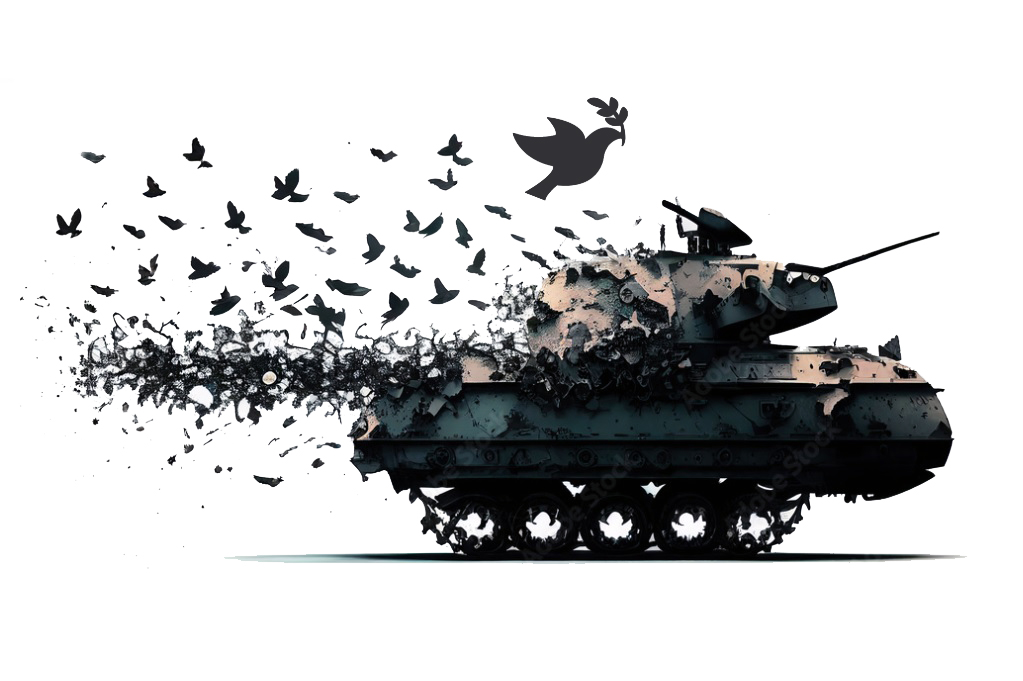
The Civilian Front... Towards Engineering the Future?
Khaled Aweis - Sudanese journalist and writer
The argument about the extent of the Sudanese crisis can never be made. The civil war, one of its most prominent representations, has highlighted the fragility of the Sudanese state and its institutions and its blatant failure, as well as the blatant failure of the political and collective mind to move beyond tactical tactics to the strategic and foreseeing the future based on new foundations whose most prominent title is science, the national project, and the latter is the absent national duty since before independence.
Now, as Sudanese groups are rushing to build a civilian front to stop the war and restore the democratic civilian path, and other groups are active in describing the crisis and coming up with solutions, it must be said that any arbitrary or non-comprehensive analysis of the historical crisis leads only to more ignition and division.
In this regard, the Sudanese will not reinvent the wheel. The experiences of Chile, Argentina, Rwanda, and CODESA in South Africa are evident before the Sudanese mind if the will, management, and proper national sense are available, and if the tendencies of spite, revenge, and the historically bizarre Sudanese practice of entrapping the political other and trying to deny and burn him are withdrawn. This practice has bequeathed us what we are in, in addition to other factors.
The Sudanese are now invited - all of them - to pave a new path through Engineering the Future that does not exclude any party as long as the matter is subject to the future and its plans. This can be done through three dialogue paths: military - military, which includes, in addition to the army and the rapid support, all the armed movements, civilian - civilian, whose goal is to lay the solid foundations for a new founding platform through a round table or a comprehensive Sudanese conference within the framework of the third dialogue path, civilian - military.
This is the last hour for a committee of Sudanese wise men known for their independence, sanity, acceptance by the majority of Sudanese, neutrality, and integrity to intervene and radically surround the crisis.
Lieutenant General Hamada Abdel Azim - member of the Transitional Military Council of 1985.
Professor Mahjoub Mohamed Saleh - Dean of Sudanese Journalism
Professor Abdullah Adam Khatir - Writer and journalist
Professor Faisal Abdel Rahman Ali Taha - Legal scholar
Sheikh Al-Yaqout - Religious leader
They may choose, through consultation among them, five other members according to the conditions of neutrality, geographical representation, representation of women and youth, and social acceptance. The aim is to act urgently and coordinate to launch a national initiative aimed at reaching comprehensive solutions through the gateway of a comprehensive conference, a round table, after stopping the war and within the framework of comprehensive arrangements to stop it and find radical treatments for all problems.
What is required is not just a formula to stop the war and restore the transition but a new formula that is entirely oriented towards engineering the future and giving priority to the strategic over the tactical. The aim is also to build a new social contract that involves all Sudanese and to put forward a new vision for a state capable - with effective, flexible, and modern institutions - of managing the future differently. It is important for all political forces to distance themselves entirely from the transitional authority in order to establish an authority of independent national figures who meet the conditions of competence. This can be done in a new political climate and according to the engineering of a real state of law whereby the law becomes the supreme and the decisive factor by building a constitutional court and a supreme court that bring in legal minds whose integrity and rigor cannot be doubted at all.
Time is precious, and all Sudanese, their right and left, their military and civilians, have only the opportunity to seize the opportunity of the war to generate a new awareness of themselves, the state, the future, and the essence of the historical crisis. This is not the time to search for personal, partisan, or regional gains. It is time to propose a win-win equation for everyone. If the war, with all its atrocities and cruelty, does not create a new awareness, a new will, and a new path through the lessons and lessons it has left and continues to leave, then peace be upon us all, and the homeland will remain under all circumstances. However, curses will remain upon us all forever because of our lack of initiative, our selfishness, and our preference for tactical solutions over the requirements of strategic construction and the development of radical treatments.

